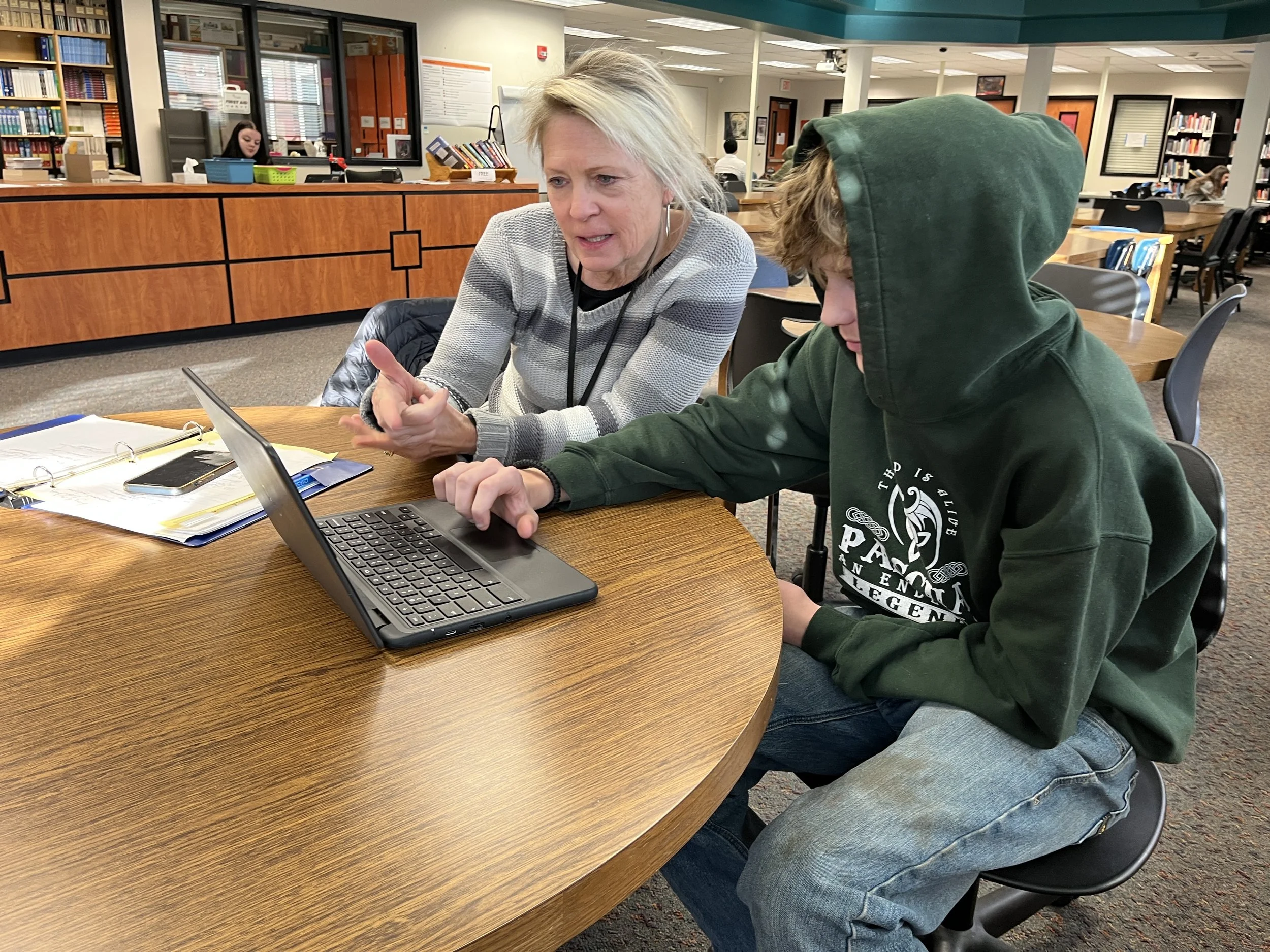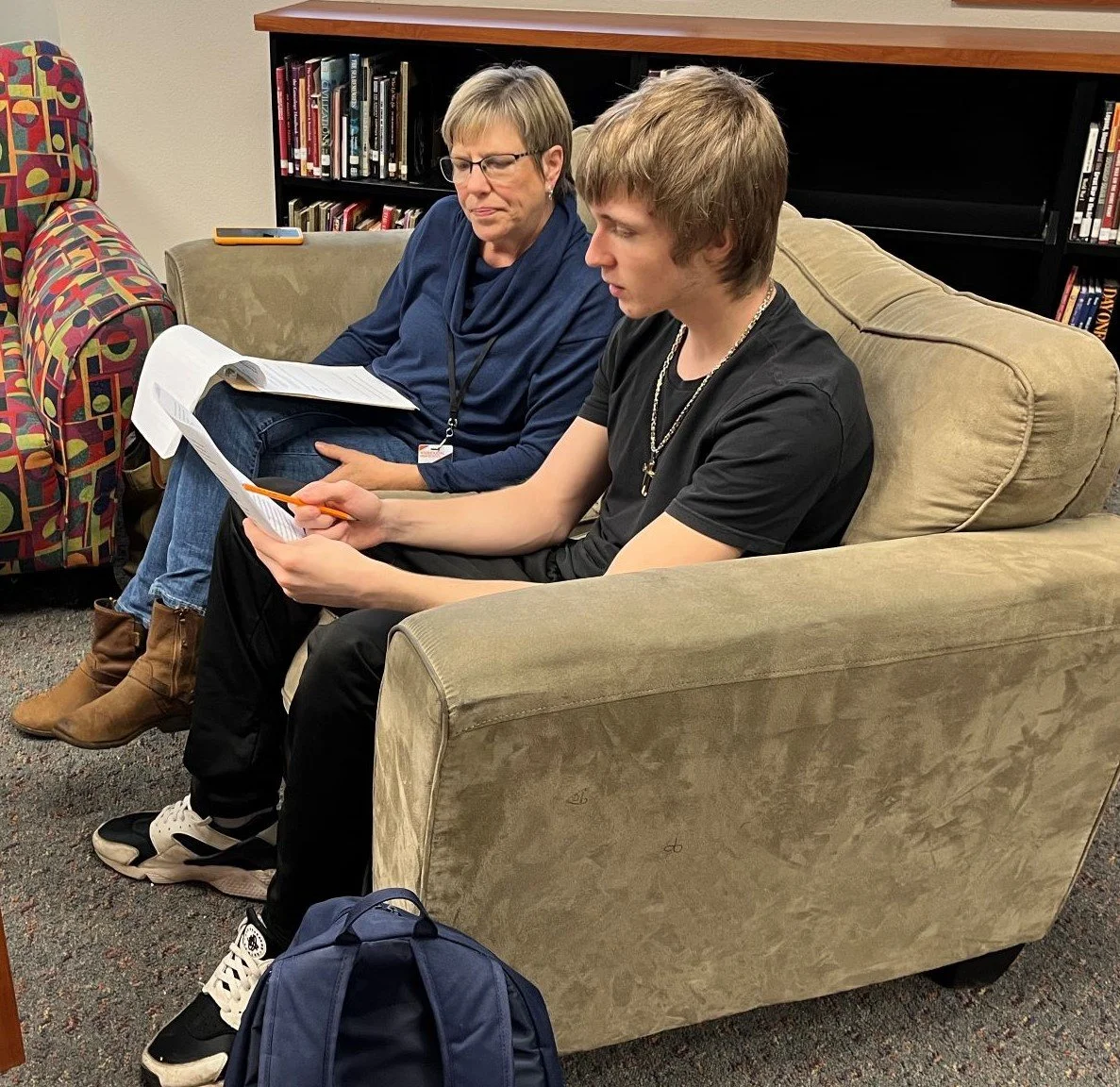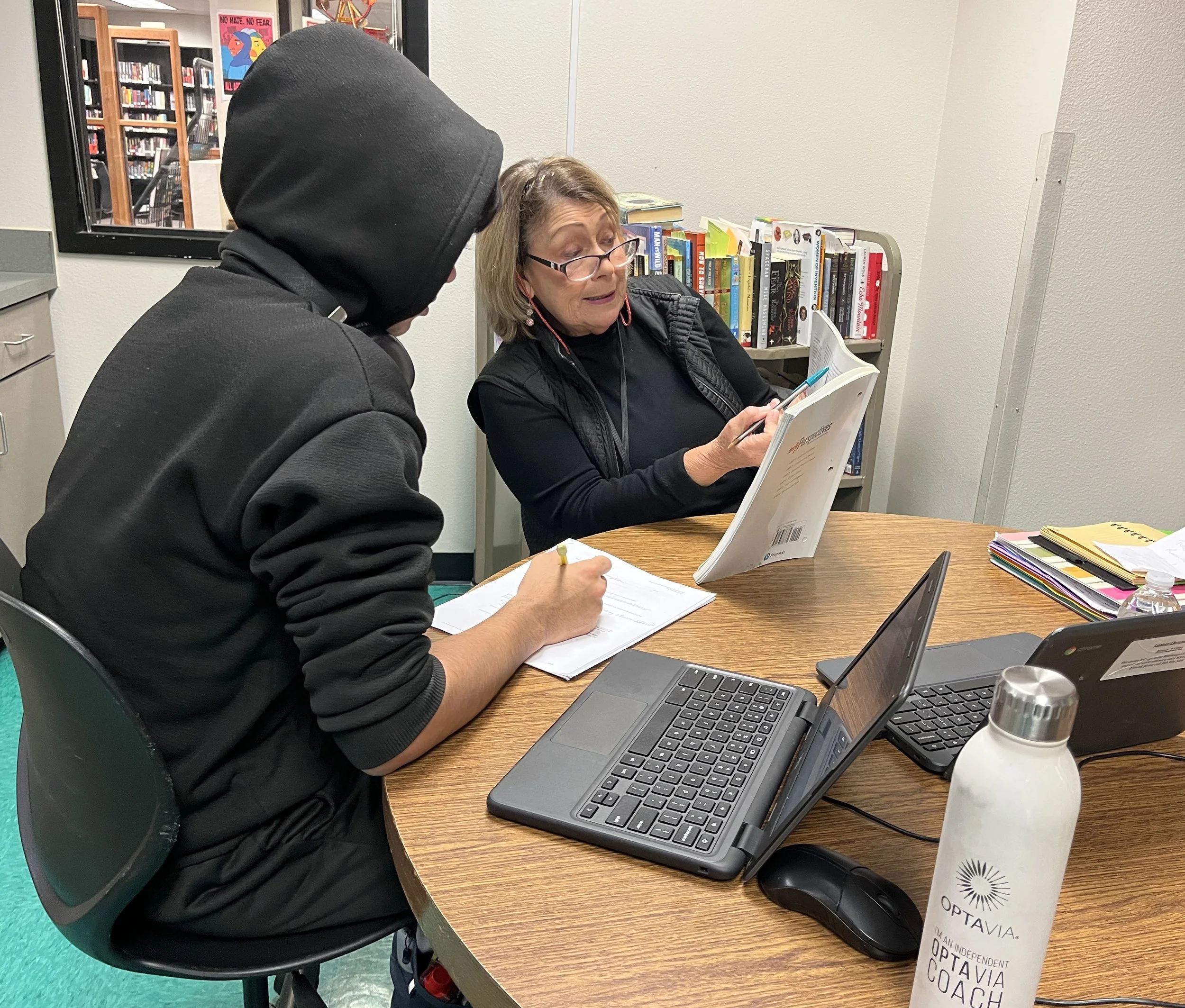Back to (social) work. A mentorship success story.
Posted by Mindi Wisman, October 21, 2025
This is the latest post in our "Back to (Social) Work Series," written by Melanie Wilson, Youth Catalytics’ former research director. This series of posts covers the community activism work she does with her Washington State nonprofit, East County Citizens’ Alliance. The previous posts can be found here, here, and here. Contact Melanie Wilson here.
Four years ago, my little nonprofit in small-town Washington State decided we wanted to help high school students who were struggling academically after the pandemic. There weren’t any models for us, mostly because community volunteers–which were all we could offer–almost never provide academic support to students in high schools. Our local high school administration was open to the idea, but in a non-committal way. They hadn’t seen this kind of program and didn’t know how to make it work. Neither did we. So, we agreed to experiment.
Lots of ideas fell by the wayside pretty quickly, and over time we learned which students were good candidates for the program and which ones weren’t. We learned that consistency was critical–consistent relationships between mentors and students, and consistent weekly sessions. We learned that we couldn’t create structured arrangements with students unless we also had teacher support. How to get it and sustain it became an important focus. Not all teachers loved us. Some, in fact, felt aggrieved by our presence. That eventually changed, but it took time and honestly, a ton of tedious organizational work. But we could experiment with that, too, and we did.
We could let the program unfold naturally for one ironic reason: the school was supportive, but not highly invested. If we failed, it didn’t matter very much. Nobody was watching us with bated breath to see how we would perform. Nobody was trying to enforce success metrics on us, and nobody’s money was on the line. No project officer was awaiting our service report, and we didn’t have to attend any funder TA calls. Week after week, we just figured it out, rolling with punches that kept on coming–well, that isn’t going to work, we’d say about one thing or another–and watching for any glimmer of success. (My first victory as a mentor came in the form of a silent fist bump from a student who learned during our session that The Odyssey, believe it or not, was actually kind of a hoot.)
We’re beginning our fourth year this fall. We have 20 volunteers and have worked with over 200 students to date. Some of them like the program so much they’re referring their friends to it. Teachers and counselors are on board. We’ve pondered why it’s worked when it could easily have fallen apart. The truth is we came close to giving up a few times. Some days it seemed just ridiculously hard. But since there was no plan to stick to and nothing on the line, we just kept trying.
Figure 4: The trajectory of one student through the program
Finally, we got proof of our effectiveness. A rigorous evaluation conducted by Portland State University data science students last spring showed sizable effects on academic progress for program participants. And those effects go beyond the class they’re being mentored in, extending to their other classes as well. (Read more about the evaluation here). Our informal annual surveys of students and teachers had already suggested to us that we were on the right track, but this was a whole new magnitude of evidence. All that said, to me our biggest success is proving that a newish thing can be done (and successfully) with no workplan, timeline, logic model or money. These preconditions were pluses, in fact. As we were trying to feel our way through a thicket of problems, freedom turned out to be more important than anything else.
Melanie Wilson
As federal funding diminishes and becomes more restrictive, education and youth service professionals will have to find new ways of getting the work done. It’s obvious that what I’ve described here wouldn’t work in a whole range of scenarios and settings. It would be ridiculous (not to mention tone-deaf) to suggest otherwise. But it would work in some. The inescapable current reality is that we’re going to have to do things differently. We’re going to have to draw on our communities in ways we haven’t before. And that’s going to take experimentation. There’s no plan that can tell us how. A plan hasn’t been written for the time we’re living through. All we have is our intelligence and tenacity. The good news is that we’ve got plenty of both.





